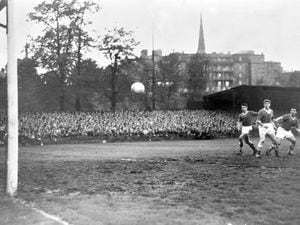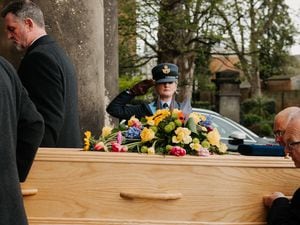200 years after her birth - how Florence Nightingale founded modern nursing
She was a brilliant statistician and had an owl in her pocket. But that's not how you know her.
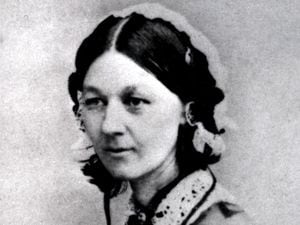
Today is the 200th anniversary of the birth of the woman credited with founding modern nursing, and whose name is synonymous with excellence in health care.
Those massive, rapidly created, coronavirus hospitals in major cities – happily hardly used – bear her name. They are Nightingale Hospitals.
And today, the birthday of Florence Nightingale, is International Nurses Day, although if some had had their way not that long ago, it wouldn't be.
In 1999 health workers in the public sector union Unison unanimously voted to ditch her as a nursing role model – they thought her too white, posh, and Protestant – and said her legacy had had a negative impact which had held nursing back.
They called (unsuccessfully) for that special day to be switched from her birthday.
However, the coronavirus outbreak has demonstrated the relevance of her pioneering work in stressing the importance of hygiene, sanitation, and infection control, and something else in which she was both gifted and a pioneer – diligent record-keeping and being able to understand what the statistics were saying.
Covid-19 coverage:
A few modern researchers have sought to trash her record in saving soldiers' lives during the Crimean War. That's a bit harsh – as the hospital at Scutari where she did her good works was over a cesspool and there was a dead horse polluting the supply of drinking water, some might say she was up against it from the start.
Florence Nightingale was born in the Italian city of Florence, hence her name, while her parents were on an extended honeymoon.
Her father was well educated and wealthy, her mother was sociable, and the family was well connected. As a teenager, Florence had the call from God which became the basis of her divine mission to ease the plight of the suffering.
Being a nurse wasn't what her parents had in mind for her at all. At the time it was not considered a suitable thing for respectable young women to do. But Florence was determined and driven, and finally they relented. She could, if she had chosen to do so, married, as she had at least two proposals, but that life was not for her.
In her early nursing roles, her gift for organisation and getting things done were immediately apparent.
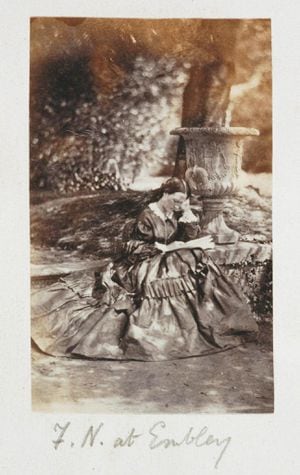
Newspaper reports about the terrible conditions for the sick and wounded in the Crimea led to a public outcry, and as a result she was asked to go out there with a team of women nurses. They arrived towards the end of 1854. Conditions in the hospitals were so bad that soldiers were far more likely to die of disease than in battle.
Her arrival was not welcomed, officialdom considering her an interloper. But as casualties mounted the services of Florence and her team were desperately needed, and she swung into action at the desperately insanitary hospital at Scutari (now called Uskudar), in Constantinople – modern day Istanbul.
Florence began to clear things up, and improve conditions and standards of care. She worked tirelessly, carrying a lamp as she went on her night rounds in the wards. The soldiers loved her and the legend of the Lady With the Lamp was born. It was said they kissed her shadow as she passed.
Reports of her work elevated her to the status of national heroine. The status of nursing was elevated as well.
Not one for any fuss, she slipped quietly back into Britain using the name Miss Smith. During her time in the Crimea she had contracted "Crimea fever" and was to be sickly and sometimes bedridden for the rest of her life.
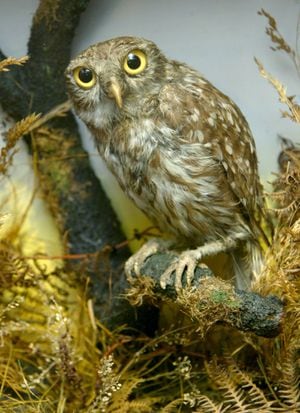
Now a revered public figure, she founded the world's first professional school of nursing, at St Thomas’ Hospital in London, which opened in 1860, and championed a range of far-reaching reforms and improvements in health care.
She pioneered evidence-based nursing, and innovative ways of presenting statistical information in an accessible way, so that even politicians could understand it.
She even wrote a novel, called Cassandra.
You can still hear the voice of Florence, as she made a short recording in 1890. She died in 1910, aged 90. She requested that her body be used for medical research, but was actually buried without fanfare.
As for that baby owl, it was called Athena. She rescued it from some boys and kept it as a pet. She had to leave it behind when she went to the Crimea, and was heartbroken when Athena died.
Athena was subsequently stuffed and is now in the Florence Nightingale Museum in London.


